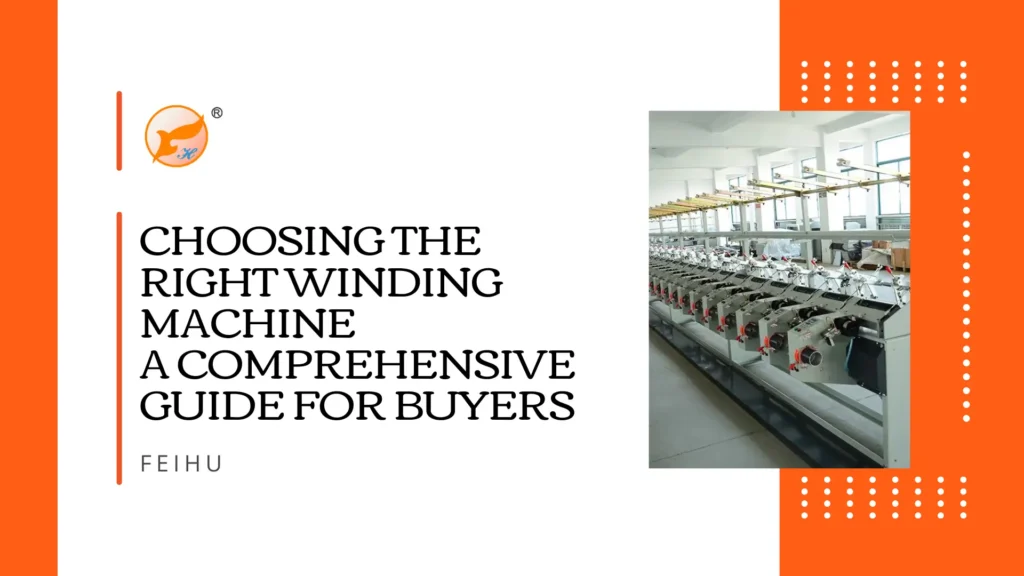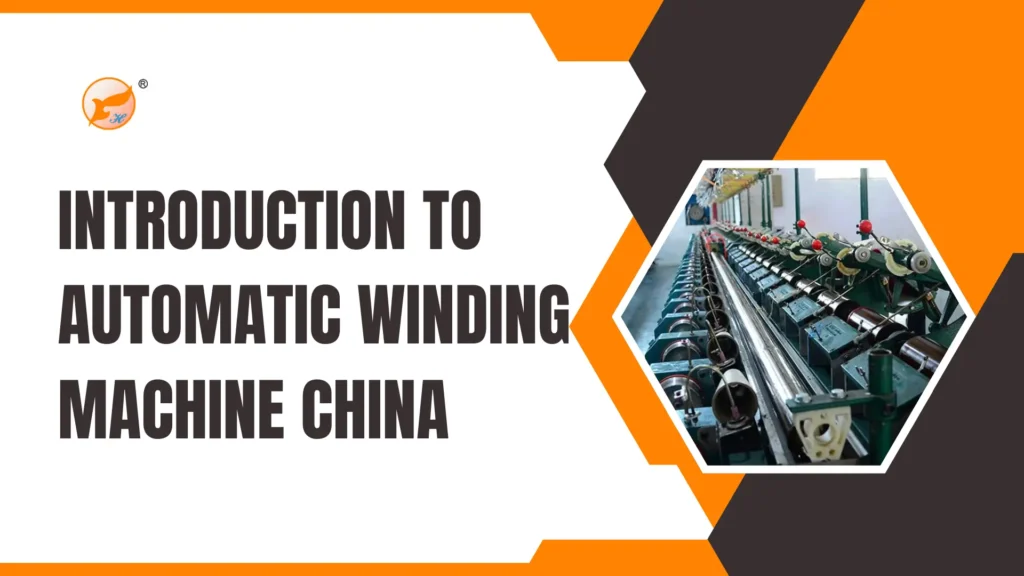Selecting the right winding machine is imperative for boosting production efficiency. The right machine can enhance throughput. It may reduce production costs.
It can also raise the quality of the finished product. In the current competitive market, choosing right can mean success or failure for manufacturers.
Winding machines play vital roles in different industries. Industries like textiles electronics and packaging.
These machines change raw materials to finished products. They do this by winding materials onto spools reels or coils.
The efficiency of these machines has a direct impact on product quality. Understanding their role is thus crucial in your specific production process.
Learn More:
Navigating Winding Machine Specifications for Smart Purchasing Decisions
Understanding Winding Machines
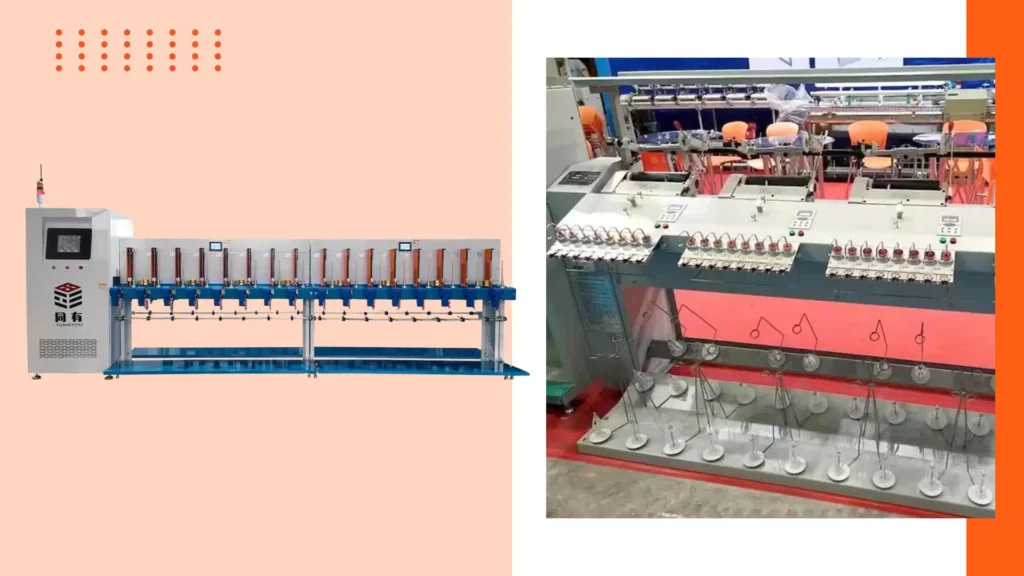
Definition and Function of Winding Machines
Winding machines are specialized tools. They wind materials about a nucleus or spool. These machines work by feeding material through a series of rollers and guides.
This ensures even alignment and tension. This process is crucial for industries that require precision.
One such industry is electrical wire manufacturing. Consistent winding has a bearing on the wire’s performance.
Different Types of Winding Machines Available
Several types of winding machines exist. They’re made for specific applications. Specific applications like textile winding machines.
These are designed for yarn and fabric. Electrical winding machines, they’re used for coils and transformers.
It’s important to understand differences in design. Also understand functionality. This helps buyers. It helps them select the most suitable machine for manufacturing needs.
Key Factors to Consider When Choosing a Winding Machine
Production Requirements
Be sure to scrutinize your production necessities when selecting a winding machine. Determine production capacity. It must meet the demand. Consider the categories of materials for winding.
Different machines vary in their handling techniques. Thus is critical to choose a machine tailored to your specific needs. It should match your specific requirements.
Machine Features
Consider the features of winding machine. They can greatly influence its performance. Ponder level of automation.
Do you need a manual machine? Or a fully automated one? Evaluate control systems available. These could include digital interfaces and programmable settings. They enhance ease of use and production flexibility.
Space and Layout
Choosing a winding machine often depends on space limitations. Calculate facility’s available area.
Make sure the machine can fit comfortably. Also think about the integration of the machine with your existing equipment. Aim to avoid disruptions on your production line.
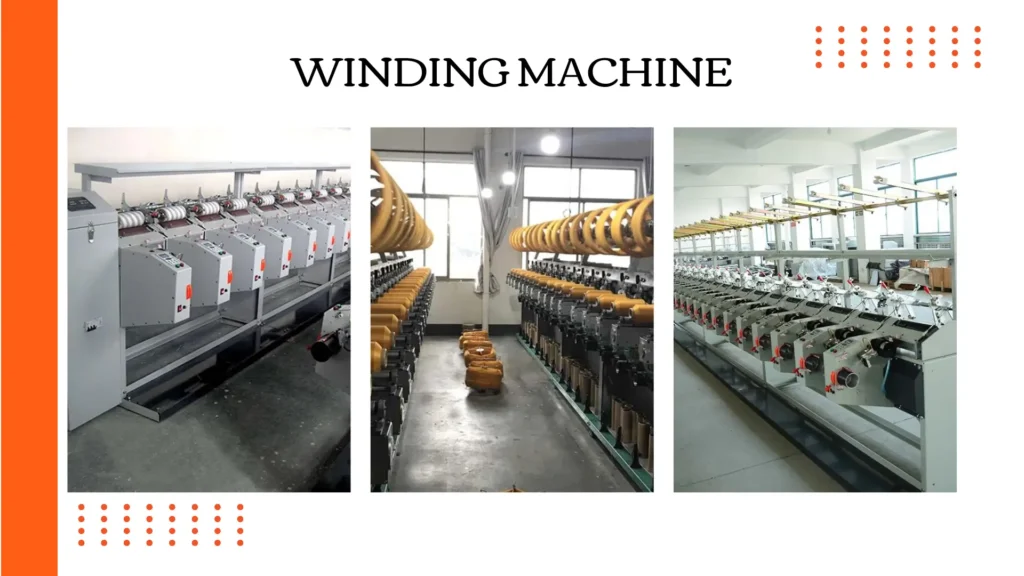
Budget Considerations
Initial purchase price is paramount. However it is of equal importance to consider total cost of ownership.
Maintenance and operational costs are involved. Don’t forget the potential energy savings.
A more expensive machine can increase efficiency. It may also offer longevity. These will lead to lower costs eventually.
Benefits of Investing in the Right Winding Machine
Increased Efficiency and Productivity
Enhanced productivity can result from an investment in the appropriate winding machine.
The process can be quicker with machines that need limited human intervention.
This helps in shortening production cycles. Without sacrificing quality manufacturers can then meet higher demands.
Improved Product Quality and Consistency
An improvement in product quality arises from the right winding machine. The machine ensures precise winding and maintains consistent tension.
In industries such as electronics this is crucial. Variations in winding, might lead to product failures.
By keeping high standards a manufacturer can gain a reputation for their reliability and quality.
Cost Savings in the Long Run
Savings in long term costs is achievable. The initial cost of a high-quality winding machine could be significant. Yet there are potential long-term cost savings.
Efficient machines can result in less waste and fewer defects. This leads to lower material costs and increased profitability.
The reliability of the machine lowers downtime. This also contributes to saving money.
Common Mistakes to Avoid
Sole Focus on Price
A very common error buyers make? They focus solely on a machine’s price. It’s crucial to stay within a budget.
But don’t forget to consider the value the machine brings. Cheaper machines may have hidden expenses.
Think of higher maintenance costs or lower effectiveness. These hidden costs might cancel out initial savings.
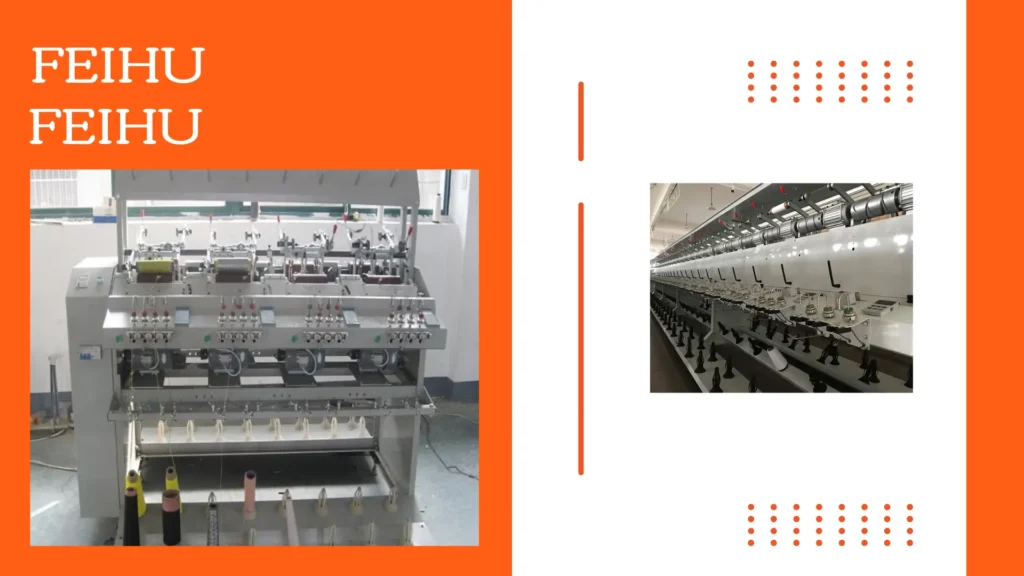
Forget to Consider After-Sales Support
Support that comes after the sale is key in any machinery purchase. You should make sure that the manufacturer or supplier provides comprehensive support services.
These include warranties and the availability of spare parts. A lack of support can lead to downtime that’s costly. It also disrupts production.
Underestimate the Importance of Training
Proper training in winding machine operators is essential. It’s key to maximizing the potential of a winding machine.
Investing in training is important. It ensures that staff can work the machine safely and efficiently.
This reduces the chances of errors and accidents. A well-trained workforce is essential.
It’s the cornerstone of maintaining production quality. It’s also key to maintaining efficiency.
Maintenance and Upkeep of Winding Machines
The Necessity of Regular Maintenance
To guarantee longevity and efficiency of winding machines regular maintenance is essential.
A maintenance schedule helps to spot potential issues before they grow. This minimizes downtime and costs.
It’s a great practice to deal with these issues early on. Regular maintenance can help avoid bigger, costlier issues. Also it can prevent more frequent repairs.
An under-maintained machine can become inefficient. It may use up more power to operate. This results in higher energy costs.
Common Maintenance Tasks
Routine duties involve cleaning lubricating and scrutinizing components. Ensuring the machine remains properly maintained is crucial.
This guarantees top performance and reduces the likelihood of unexpected malfunctions. In short regular upkeep is key to optimal function.
Training for Maintenance Personnel
It is vital to invest in training for maintenance staff. Such staff can effectively carry out tasks of maintenance.
They can also troubleshoot minor issues. This ensures machine operates at peak efficiency.
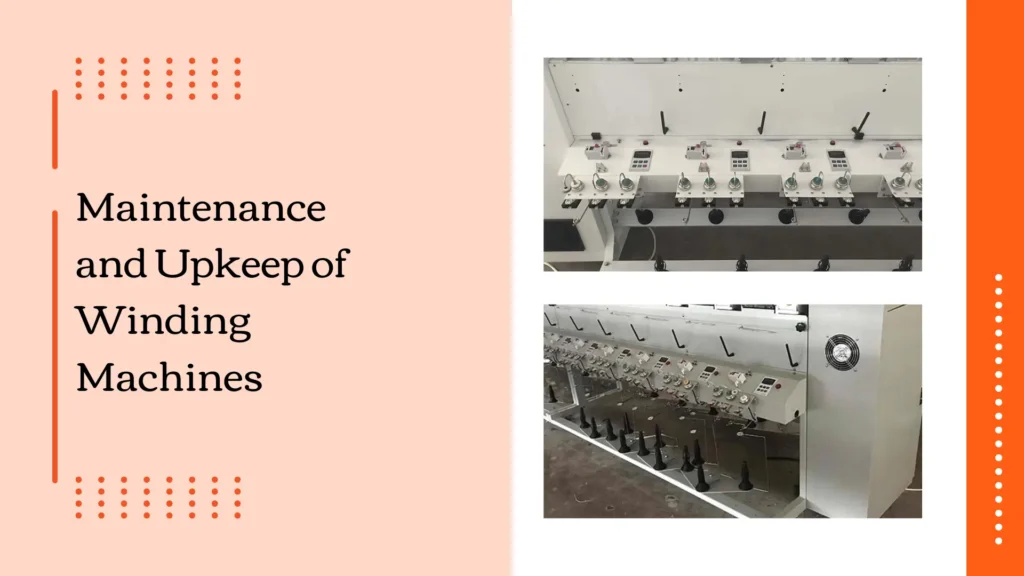
Documentation and Record-Keeping
Maintenance activities documentation is of great importance. It is key that these activities are maintained in detailed records.
This helps in tracking the performance of the machine. Also it aids in identifying patterns.
These patterns may suggest a need for more extensive repairs. In some cases it may indicate upgrades are necessary.
Future Trends in Winding Machine Technology
Advancements in Automation
Automation’s future is bright. The advances in winding machines are an example. Greater automation is the trend now.
Smart technologies are in. As well as IoT integration. Real-time monitoring is possible with these.
Adjustments can be made instantaneously. Efficiency is boosted, a notable improvement. Human error is reduced.
Better Materials and Designs
There are innovations in materials. Winding machines are a prime example.
These innovations lead to designs that are both lighter and more durable.
Better machine performance is the result. They also improve energy efficiency. This leads to long-term cost-effectiveness.
Options for Customization
Manufacturers are on a mission. The mission is to meet production needs. The demand for customizable winding machines is on the rise.
These machines can be tailored to various materials. They can also be tailored to different production processes. They offer flexibility.
Emphasis on Sustainability
More focus is shifting to sustainability. This is making manufacturers think. They are rethinking their winding machines to reduce waste.
They are also looking to cut down on energy consumption. By investing in environmentally friendly technology a company can enhance its green credentials.
This will make the company more appealing to consumers that are environmentally conscious.

Conclusion
Selecting appropriate winding machine needs careful thought. The machine you choose affects production efficiency. It has direct bearing on product quality. It affects overall profitability too.
You can make an intelligent decision by assessing your specific needs. Understand the multiple factors at play.
Prior to making a purchase, evaluate your unique production needs. Consult experts to gain knowledge. Seek insights from peers in your industry. Thoroughly research all your available options.
A well-informed decision is key. Such a decision will not just enhance manufacturing processes. It will also contribute to your business’ long-term success.
